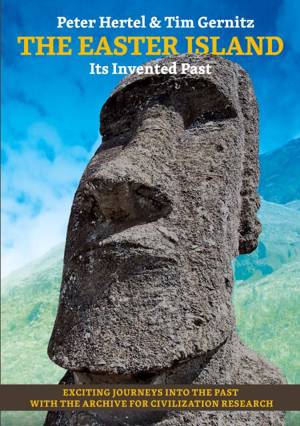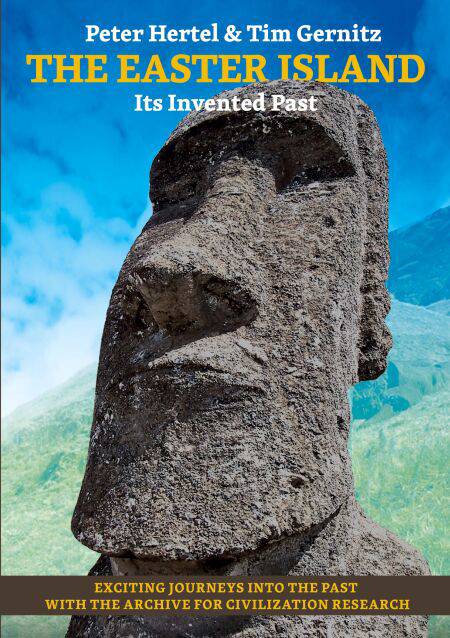
- Afhalen na 1 uur in een winkel met voorraad
- Gratis thuislevering in België vanaf € 30
- Ruim aanbod met 7 miljoen producten
- Afhalen na 1 uur in een winkel met voorraad
- Gratis thuislevering in België vanaf € 30
- Ruim aanbod met 7 miljoen producten
Zoeken
Omschrijving
Easter Sunday 1722: The sea roars. After a seemingly never-
ending journey across the Pacific, the outlines of an island
appear in the morning mist. Captain Roggeveen and his crew
christen it: Isla de Pascua - Easter Island.
For more than 50 years, the Freiberg Archive for Civilisation
Research has been researching the history of Easter Island
in the South Pacific. This non-fiction book is the unconven-
tional result.
The early history of Easter Island is based only on myths,
but not on proven facts. Numerous authors gathered verbal
reports of old natives of the 19th and 20th centuries. And
created a construct that, at best, can only be described as a
fairy tale.
Easter Island was once, after the collapse of its first great
culture, a place of devastation, a place of human disasters.
And a symbol of what will happen to humanity if it does not
take care of its life, their dealings with each other and their
planet.
ending journey across the Pacific, the outlines of an island
appear in the morning mist. Captain Roggeveen and his crew
christen it: Isla de Pascua - Easter Island.
For more than 50 years, the Freiberg Archive for Civilisation
Research has been researching the history of Easter Island
in the South Pacific. This non-fiction book is the unconven-
tional result.
The early history of Easter Island is based only on myths,
but not on proven facts. Numerous authors gathered verbal
reports of old natives of the 19th and 20th centuries. And
created a construct that, at best, can only be described as a
fairy tale.
Easter Island was once, after the collapse of its first great
culture, a place of devastation, a place of human disasters.
And a symbol of what will happen to humanity if it does not
take care of its life, their dealings with each other and their
planet.
Specificaties
Betrokkenen
- Auteur(s):
- Uitgeverij:
Inhoud
- Aantal bladzijden:
- 252
- Taal:
- Engels, Spaans
- Reeks:
Eigenschappen
- Productcode (EAN):
- 9783695137558
- Verschijningsdatum:
- 2/09/2025
- Uitvoering:
- E-book
- Beveiligd met:
- Digital watermarking
- Formaat:
- ePub

Alleen bij Standaard Boekhandel
+ 9 punten op je klantenkaart van Standaard Boekhandel
Beoordelingen
We publiceren alleen reviews die voldoen aan de voorwaarden voor reviews. Bekijk onze voorwaarden voor reviews.











